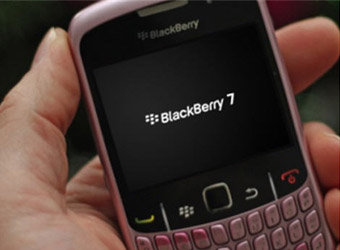President Barack Obama couldn’t bear to part with his BlackBerry. Oprah Winfrey declared it one of her “favorite things.” It could be so addictive that it was nicknamed “the CrackBerry.”
Then came a new generation of competing smartphones, and suddenly the BlackBerry, that game-changing breakthrough in personal connectedness, looks ancient.
There is even talk that the fate of Research In Motion, the company that fathered the BlackBerry in 1999, is no longer certain as its flagship property rapidly loses market share to flashier phones like Apple’s iPhone and Google’s Android-driven models.
With more than $2 billion in cash, bankruptcy for RIM seems highly unlikely in the near term, but these are troubling times for Waterloo, Ontario, the town of 100,000 that was transformed by the BlackBerry into Canada’s Silicon Valley. RIM is Canada’s most valuable technology company, an international icon so prestigious that founder Mike Lazaridis and its other driving force, Jim Balsillie, are on an official government list of national heroes, alongside the likes of Alexander Graham Bell.
RIM’s U.S. share of the smartphone market belly-flopped from 44 percent in 2009 to 10 percent in 2011 according to market researcher NPD Group. The company still has 78 million active subscribers across the globe, but last month RIM issued a warning that it will lose money for the second consecutive quarter, will lay off workers this year, and has hired a team of bankers to help it weigh its options. Last July it slashed 2,000 jobs.
Of RIM’s 16,500 remaining employees, 7,500 live in Waterloo, a university town 90 minutes’ drive from Toronto, where everyone seems to know someone who works for RIM.
John Lind says RIM’s impact on his field, commercial real estate, is enormous. “We talk about RIM in hushed tones in this region because no one wants to be negative about it, no one wants to be seen as not on their side,” he said. “But people are saying, ‘What would this region look like without RIM?'”
The decline of the BlackBerry has come shockingly fast. Just five years ago, when the first iPhone came out, few thought it could threaten the BlackBerry. Now Chief Executive Thorsten Heins says his employees “are getting asked all the time, ‘What’s going on with you guys? What happened? I mean RIM is the star of Canada and what happened to you guys? And how bad is it going to go?'”
RIM’s software is still focused on email, and is less user-friendly and agile than iPhone or Android. Its attempt at touch screens was a flop, and it lacks the apps that power other smartphones. Its tablet, the PlayBook, registered just 500,000 sales to Apple’s 11.8 million in the last quarter despite a price cut from $500 to $200, well below cost.
RIM’s hopes now hang on BlackBerry 10, a new operating system set to debut later this year. It’s thoroughly redesigned for the new multimedia, Internet browsing and apps experience that customers are now demanding.


